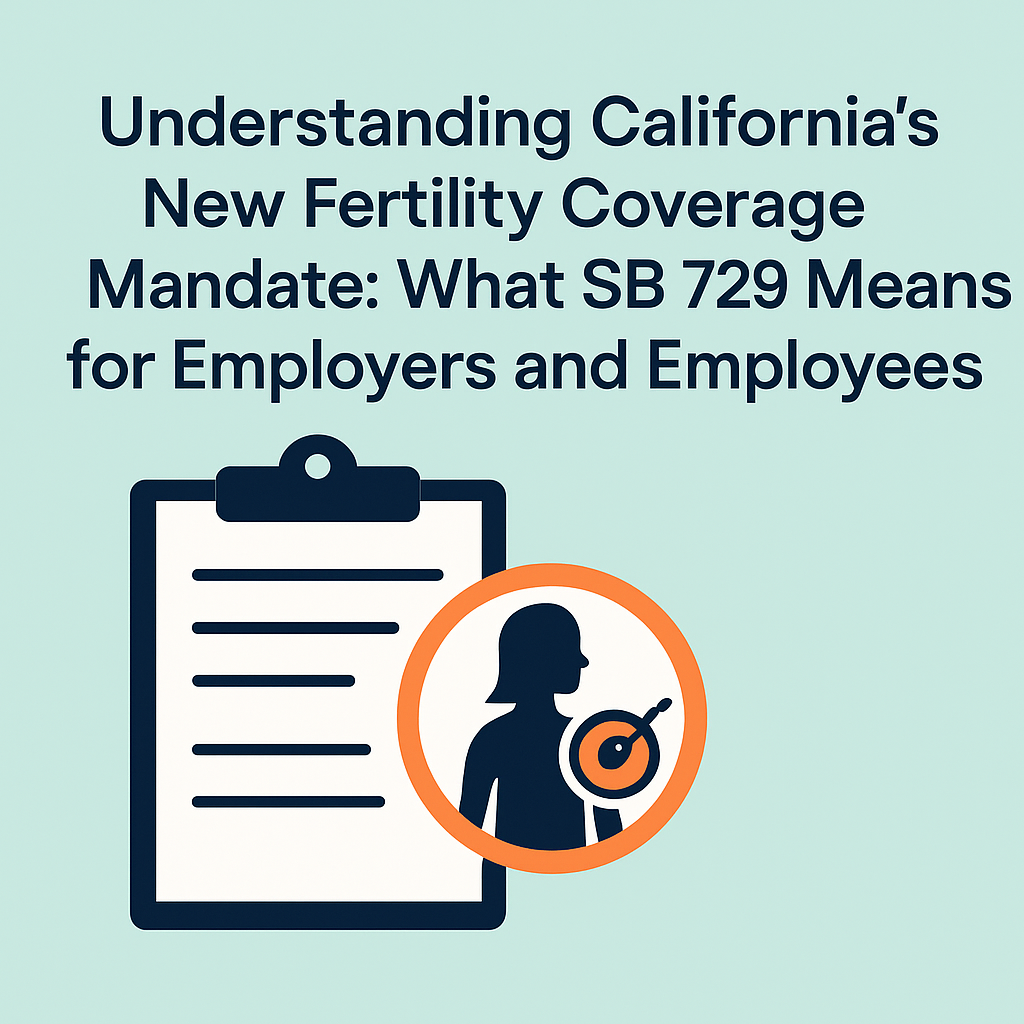California has once again taken a progressive step in healthcare policy with the passage of Senate Bill 729 (SB 729), which mandates significant changes in how health insurance providers handle fertility care. Signed into law on September 29, 2023, the bill goes into effect on July 1, 2025, and introduces mandatory coverage for infertility diagnosis and treatment—including in vitro fertilization (IVF)—in large group health insurance plans.
This law is a landmark move toward improving access to reproductive care and making fertility treatment more inclusive and affordable for millions of Californians.
Key Highlights of SB 729
1. Required Fertility Coverage for Large Group Plans
-
Fully insured large group health plans (generally covering 101+ employees) must provide comprehensive coverage for infertility, including IVF.
-
Coverage includes:
-
Diagnosis and treatment of infertility
-
Up to three completed oocyte (egg) retrievals
-
Unlimited embryo transfers
-
2. Updated, Inclusive Definition of Infertility
-
SB 729 expands the definition of infertility beyond traditional standards. Now, infertility is defined as the inability to reproduce either as an individual or with a partner without medical intervention.
-
This inclusive definition ensures coverage for:
-
Same-sex couples
-
Single individuals
-
Individuals using donor sperm, donor eggs, or gestational carriers
-
3. Cost-Sharing Parity
-
The law prohibits insurers from applying higher deductibles, co-pays, or coinsurance for infertility benefits than those applied to other medical services.
-
This ensures fair and equal access to fertility treatments without imposing extra financial burden.
4. Coverage Offer Requirements for Small Group Plans
-
While small group plans (100 or fewer employees) are not required to include fertility coverage, insurers must offer plans that do include these benefits.
-
Employers in the small group market can choose to adopt these enhanced offerings to better support their workforce.
5. Non-Discrimination Provisions
-
Insurers may not deny or limit coverage based on age, gender identity, sexual orientation, marital status, or other protected characteristics.
-
This adds an important layer of equity to the way reproductive healthcare is delivered and accessed.
Who Is Affected?
-
Employers with fully insured large group health plans in California must comply with SB 729 starting July 1, 2025.
-
Employers with self-funded (ERISA) plans are exempt but may choose to mirror these benefits to stay competitive and inclusive.
-
Religious employers with moral objections to infertility treatment may also be exempt.
Why It Matters
Infertility is a medical condition that affects about 1 in 8 couples in the U.S. Historically, fertility treatment—especially IVF—has been expensive and not widely covered by insurance, creating barriers for individuals and couples trying to start a family.
With SB 729:
-
Employees gain greater access to affordable fertility care.
-
Employers demonstrate a commitment to diversity, equity, and inclusion.
-
Organizations can better support workforce wellness and retention.
For many employees, these benefits go far beyond the financial—they represent validation, support, and hope during a deeply personal journey.
What Employers Should Do Now
Though the law takes effect in mid-2025, now is the time to prepare:
-
Review your current health benefits to understand existing fertility coverage.
-
Engage your benefits broker or consultant to evaluate plan compliance and explore updates where needed.
-
Educate your HR team and employees on the upcoming changes to ensure awareness and transparency.
-
Consider voluntary updates to self-funded plans that don’t fall under the mandate but want to align with the new standard.
Final Thoughts
SB 729 is more than a legal change—it’s a milestone for equitable access to family-building options. By proactively preparing for its implementation, California employers can ensure compliance while making a meaningful difference in their employees’ lives.
Providing robust fertility benefits is no longer just a perk—it’s becoming a standard of compassionate, modern healthcare.


